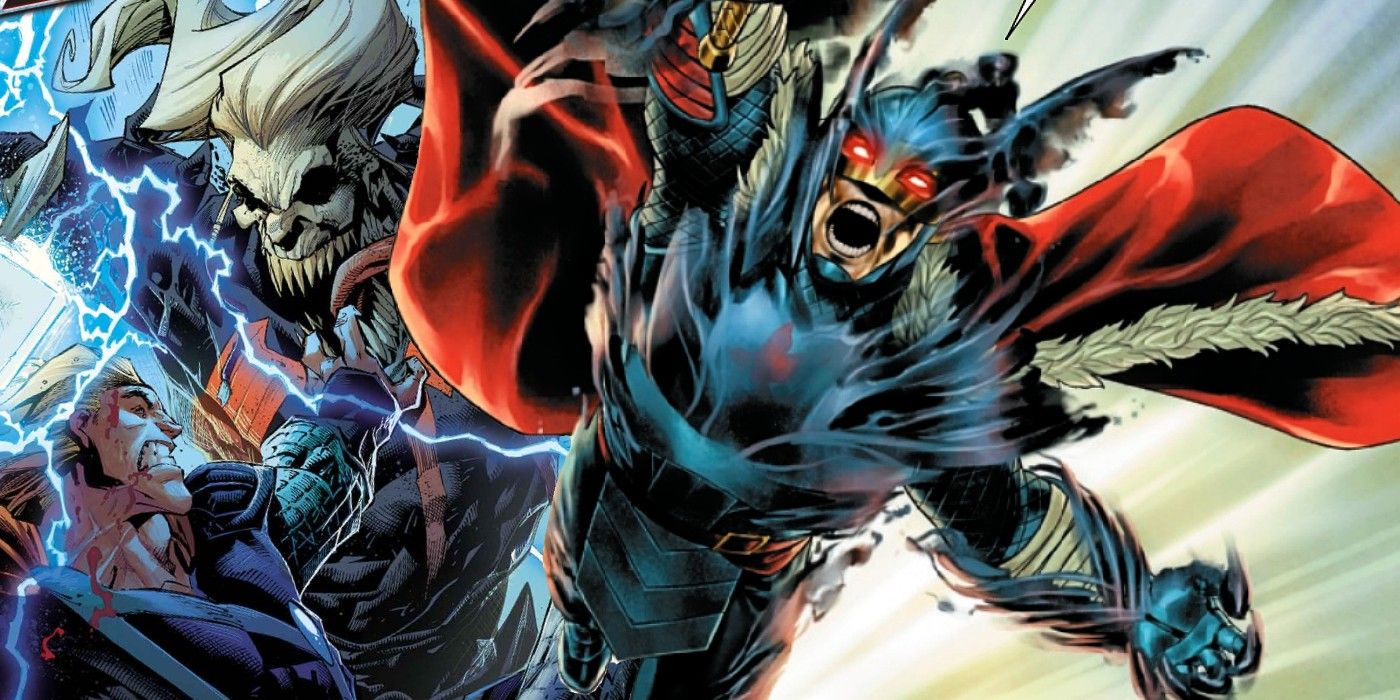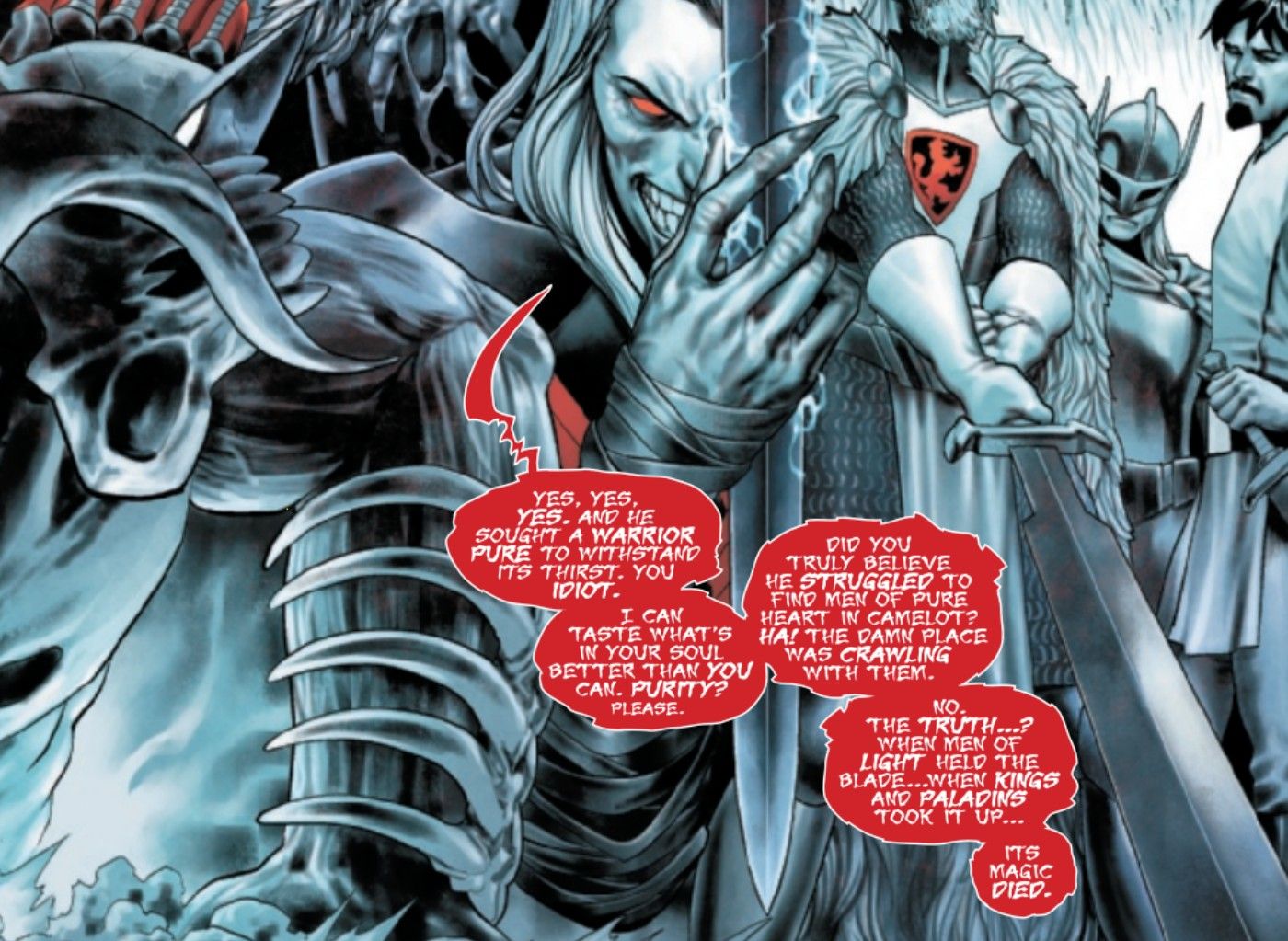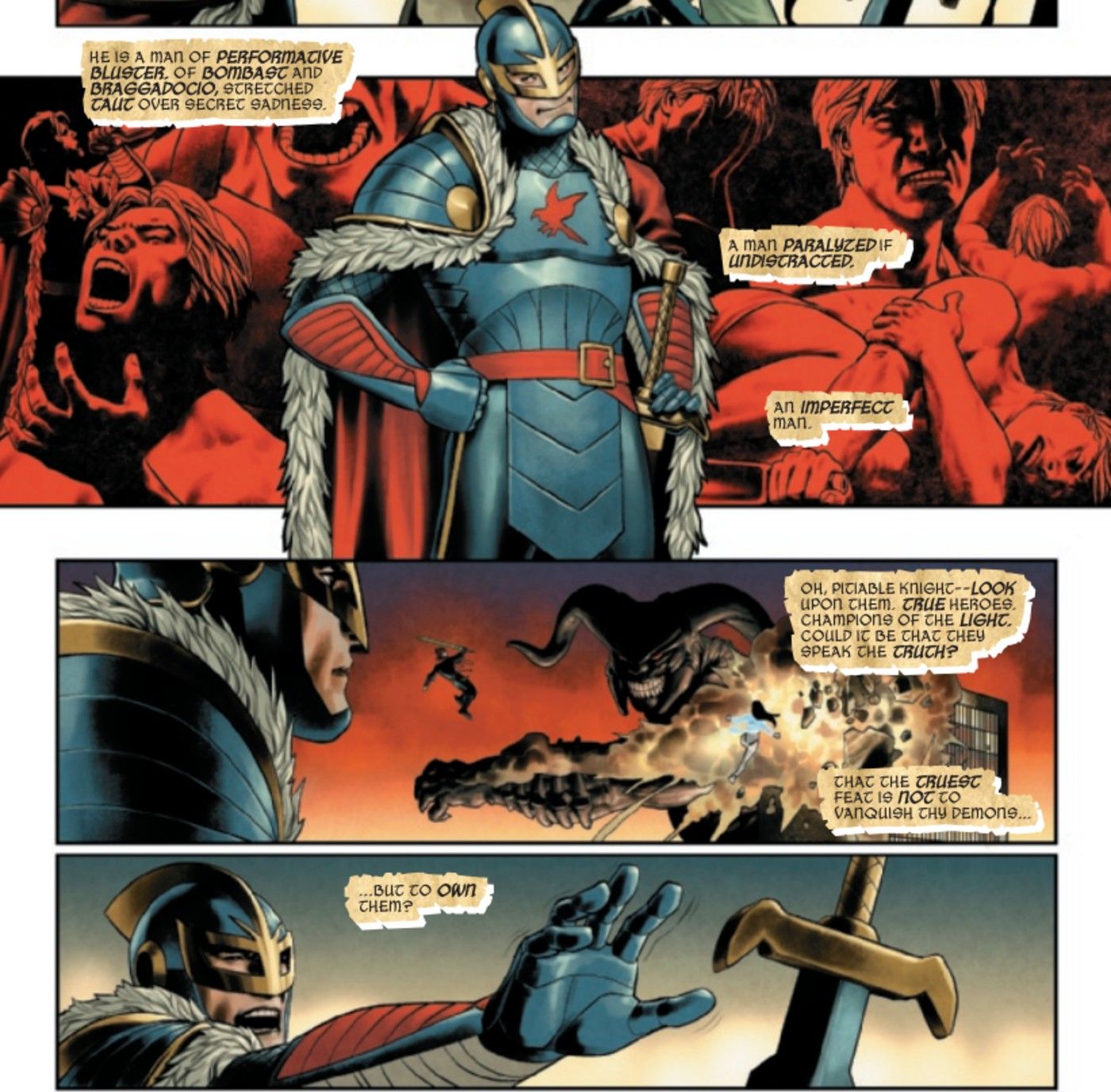Warning: spoilers for King in Black: Black Knight #1!
Marvel's Black Knight has always had a weird selection of powers, combining his enchanted sword the Ebony Blade with bleeding-edge scientific know-how that allows him to clone his own winged horses and design gadgets that have, at times, made him an Avengers-level hero. But in facing Knull, the King in Black, Dane Whitman just learned the deep, dark truth of his abilities, getting a huge power boost that nevertheless makes him basically the Anti-Thor in Marvel Comics.
Descended from the original Black Knight, Percy of Scandia - a character whose adventures were published by Marvel's predecessor, Atlas Comics - Dane's story has long been that he was chosen to wield the Ebony Blade by Merlin since he was noble enough to resist its curse, which pushes him towards using the sword to take the lives of his enemies. Captain Britain and MI13 and Original Sins #2 made it clear that while Dane was keeping the sword's curse at bay, he was also growing addicted to it, and veering down the dark path taken by those who came before him.
But in King in Black: Black Knight #1 - from Simon Spurrier and Jesus Saiz - Knull reveals the truth: the sword doesn't implant dark thoughts in its wielder, but rather draws on the darkness and doubt already inside them. Dane Whitman wasn't chosen to be the Black Knight because he was worthy, but because he is such a flawed, neurotic man that he is able to keep the sword 'fed' at all times. As Knull explains, "Merlin lied. Sir Percy was chosen for his weakness. ... The Ebony Blade can only be wielded to its mightiest potential by those impure of heart."
Thankfully - after initially being horror-stricken - Dane is able to accept this fact, and use it to tap even deeper into the Ebony Blade's potential. Where before he tried to bury his flaws, now he realizes he can accept them, purging them through the blade to unlock a new level of power that grants him flight and the strength to vanquish Knull's newest avatar in one blow. Flying and shrouded in ebony energy, the Black Knight already looks the part of an avenging god. Early in the comic, Dane reveals he can recall the Ebony Blade to his hand as Thor does his hammer Mjolnir, though ultimately admits that the sword only sometimes obeys him, and sometimes chooses to come at him point first. In his new form, the sword whips through the air as an extension of his will.
But the differences to Marvel's thunder god are what make Dane's upgrade so fitting. Only the worthy can lift Thor's hammer and gain the powers of a god, but Marvel have acknowledged that a huge part of that worth is believing you're doing the right thing. When Nick Fury shook Thor's confidence in the role of gods, he was unable to lift the hammer and lost his powers. In this issue, the Black Knight learns his powers work in the opposite direction: only the impure of heart can access the Ebony Blade's full potential, and even then only by accepting their flaws. Thor's powers rely on him believing he's worthy of calling himself a god, but from now on, the Black Knight's abilities depend on accepting he is a deeply, deeply flawed man and then being a hero anyway.
It's great to see Marvel take a character who's been the butt of a relatively grim joke for years now and empower him in a way that speaks to productive mental health practices. Soon to be played by Kit Harington in the MCU's The Eternals, Black Knight is likely to get a lot more attention in the comics, and now not only does he have powers comparable to Thor, but his core sense of meaning is drawn not from trying to be a paragon (and failing), but from accepting his deeply human imperfection. The King in Black's revelation has made the Black Knight a more compelling character and a more powerful hero in Marvel Comics.



